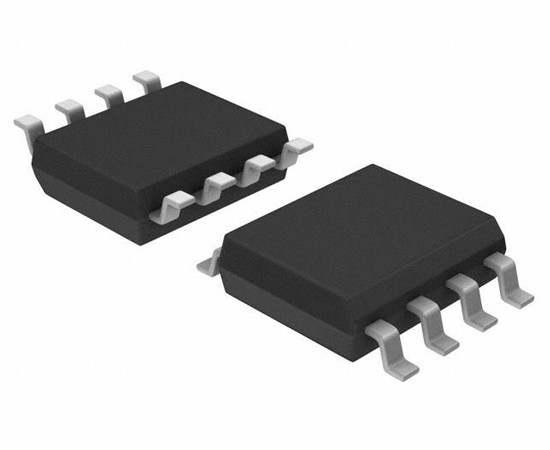ATTINY13-20SU
| Manufacturer: | MICROCHIP |
| Architecture: | 8-bit |
| FLASH memory: | 1kB |
| RAM memory: | 64B |
| EEPROM memory: | 64B |
| Number of I/O: | 6 |
| Supply voltage range: | 2,7V~5,5V |
| Quantity of pcs. | 5+ (Need a significantly larger quantity? Ask for price). |
|---|---|
| Net price (EUR) | 1,2695 |
| Quantity of pcs. | 180+ (Need a significantly larger quantity? Ask for price). |
|---|---|
| Net price (EUR) | 1,1416 |
| Manufacturer: | MICROCHIP |
| Architecture: | 8-bit |
| FLASH memory: | 1kB |
| RAM memory: | 64B |
| EEPROM memory: | 64B |
| Number of I/O: | 6 |
| Supply voltage range: | 2,7V~5,5V |
| Frequency: | 20,000MHz |
| ADC: | YES |
| DAC: | NO |
| UART/USART interface: | NO |
| SPI interface: | NO |
| TWI (I2C) interface: | NO |
| CAN interface: | NO |
| ETHERNET interface: | NO |
| USB interface: | NO |
| Encryption: | NO |
| Operating temperature (range): | -40°C ~ 85°C |
| Case: | SOP08W |
8-bit Microcontroller with 1K Bytes In-System Programmable Flash ATtiny13.
Features
• High Performance, Low Power AVR® 8-Bit Microcontroller
• Advanced RISC Architecture
– 120 Powerful Instructions – Most Single Clock Cycle Execution
– 32 x 8 General Purpose Working Registers
– Fully Static Operation
– Up to 20 MIPS Througput at 20 MHz
• High Endurance Non-volatile Memory segments
– 1K Bytes of In-System Self-programmable Flash program memory
– 64 Bytes EEPROM
– 64 Bytes Internal SRAM
– Write/Erase Cycles: 10,000 Flash/100,000 EEPROM
– Data retention: 20 Years at 85°C/100 Years at 25°C
– Programming Lock for Self-Programming Flash & EEPROM Data Security
• Peripheral Features
– One 8-bit Timer/Counter with Prescaler and Two PWM Channels
– 4-channel, 10-bit ADC with Internal Voltage Reference
– Programmable Watchdog Timer with Separate On-chip Oscillator
– On-chip Analog Comparator
• Special Microcontroller Features
– debugWIRE On-chip Debug System
– In-System Programmable via SPI Port
– External and Internal Interrupt Sources
– Low Power Idle, ADC Noise Reduction, and Power-down Modes
– Enhanced Power-onReset Circuit
– Programmable Brown-out Detection Circuit with Software Disable Function
– Internal Calibrated Oscillator
• I/O and Packages
– 8-pin PDIP/SOIC: Six Programmable I/O Lines
– 20-pad MLF: Six Programmable I/O Lines
• Operating Voltage:
– 2.7 - 5.5V for ATtiny13
• Speed Grade:
- ATtiny13: 0 - 10 MHz @ 2.7 - 5.5V, 0 - 20 MHz @ 4.5 - 5.5V
• Industrial Temperature Range
• Low Power Consumption
– Active Mode:
• 1 MHz, 1.8V: 240 μA
–Idle Mode:
• < 0.1 μA at 1.8V
The AVR core combines a rich instruction set with 32 general purpose working registers. All 32 registers are directly connected to the Arithmetic Logic Unit (ALU), allowing two independent registers to be accessed in one single instruction executed in one clock cycle. The resulting architecture is more code efficient while achieving throughputs up to ten times faster than conventional
CISC microcontrollers.
The ATtiny13 provides the following features: 1K byte of In-System Programmable Flash, 64 bytes EEPROM, 64 bytes SRAM, 6 general purpose I/O lines, 32 general purpose working registers, one 8-bit Timer/Counter with compare modes, Internal and External Interrupts, a 4-channel, 10-bit ADC, a programmable Watchdog Timer with internal Oscillator, and three software selectable power saving modes. The Idle mode stops the CPU while allowing the SRAM, Timer/Counter, ADC, Analog Comparator, and Interrupt system to continue functioning. The Power-down mode saves the register contents, disabling all chip functions until the next Interrupt or Hardware Reset. The ADC Noise Reduction mode stops the CPU and all I/O modules except ADC, to minimize switching noise during ADC conversions.
The device is manufactured using Atmel’s high density non-volatile memory technology. The On-chip ISP Flash allows the Program memory to be re-programmed In-System through an SPI serial interface, by a conventional non-volatile memory programmer or by an On-chip boot code running on the AVR core.
The ATtiny13 AVR is supported with a full suite of program and system development tools including: C Compilers, Macro
Assemblers, Program Debugger/Simulators, and Evaluation kits.

